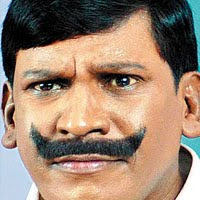
Probably the most debilitating emotion that humans must confront is that of fear. Fear confuses. Fear paralyzes. Fear prevents you from thinking clearly, accessing your spiritual gifts and being who you truly are. Fear is the anticipation of future pain. It's been said that 90% of humans are motivated to avoid pain, while only 10% seek pleasure. It's no surprise that we suffer from fear. We've been trained to fear from an early age. Don't play in traffic - fear of getting run over. Don't talk to strangers - fear of being abducted. Don't misbehave or Mommy won't love you - fear of abandonment. As we grow older, we learn new fears: Fear of not being loved. Fear of being rejected. Fear of not having enough. Fear of being unworthy or inadequate. Fear of making a mistake. Fear of being restricted. Fear of getting fired. Fear of being annihilated by nuclear-armed terrorists. Every day, we are bombarded with new fear-based messages by advertisers, politicians and the media. It's easy to understand why: Fearful people are easy to control.
Fear is one of humanity's most primitive emotions, triggering the adrenaline rush associated with the fight or flight response to danger. In life-threatening situations, this is helpful, better preparing you to do battle or to escape. But in non-lethal situations, fear clouds judgment and encourages you to REACT - rather than carefully consider alternatives - thus ensuring a less than optimal response to your problem. Even worse, attachment to fear inhibits your ability to tap into your innermost self. Connecting with your inner master requires you to be balanced and your brain hemispheres be in synch. Fear causes your brain to automatically return to its dominant side - logical or emotional - again, ensuring unbalanced input into solving your problem.
Fear is a low vibration, dense emotion. Clinging to this negative, energy-draining emotion guarantees you will be unable to transcend to higher states of consciousness, characterized by higher vibration emotions such as love, joy, peace and happiness. You can't take your baggage to the higher worlds, so eliminating fear is critical. All people, even warriors, have some degree of fear. What separates warriors from timid souls is not their inability to recognize danger. What makes some people warriors is their willingness to act in the face of fear. By repeated experience, warriors come to know that fear dissolves with conscious action. - Edwin Harkness Spina








